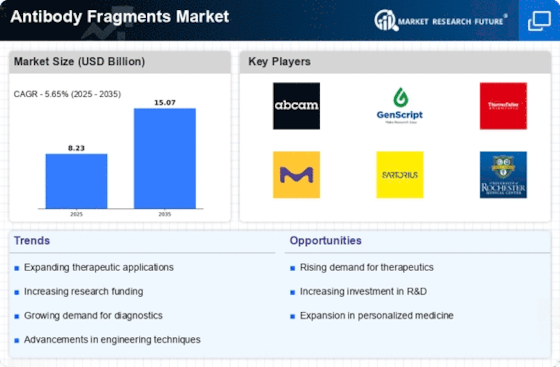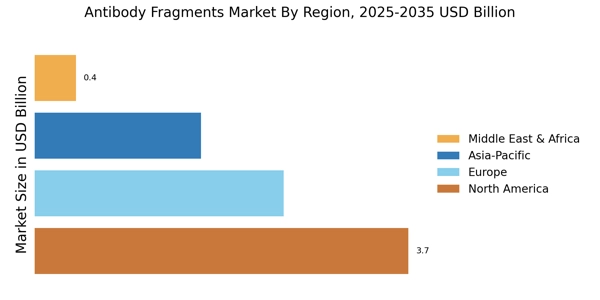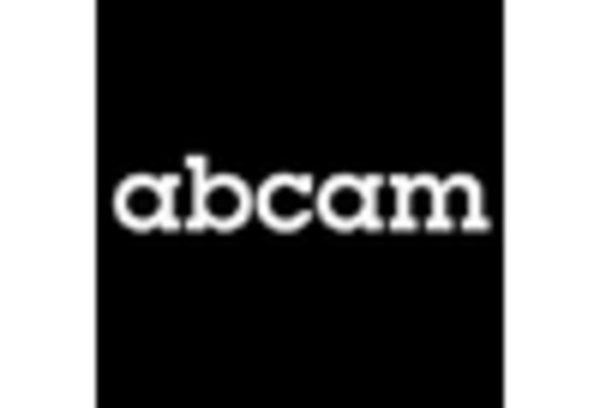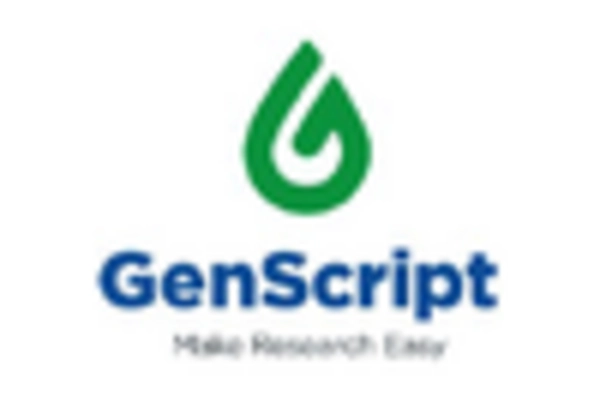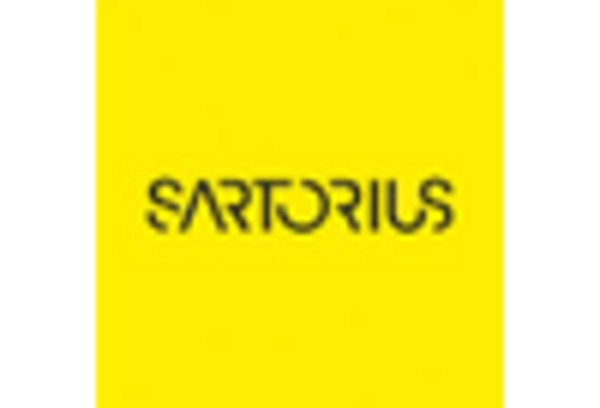Increase in Chronic Diseases
The rise in chronic diseases such as cancer, autoimmune disorders, and infectious diseases is a primary driver of the Antibody Fragments Market. As these conditions become more prevalent, the demand for effective therapeutic solutions intensifies. Antibody fragments, known for their specificity and reduced immunogenicity, are increasingly being utilized in targeted therapies. According to recent estimates, the prevalence of cancer alone is projected to reach 29.5 million cases by 2040, necessitating innovative treatment options. This growing patient population is likely to propel the Antibody Fragments Market forward, as healthcare providers seek advanced therapies that can improve patient outcomes while minimizing side effects.
Regulatory Support for Biologics
Regulatory frameworks that support the development and approval of biologics are fostering growth in the Antibody Fragments Market. Agencies are streamlining the approval processes for antibody-based therapies, recognizing their potential to address unmet medical needs. This regulatory support is evident in the increasing number of approvals for antibody fragment therapies, which have seen a rise of 20% in the last two years. Such favorable regulatory environments encourage investment and innovation, as companies are more willing to pursue the development of new antibody fragment-based therapies. Consequently, this trend is likely to enhance the competitive landscape of the Antibody Fragments Market, leading to a wider array of therapeutic options for patients.
Growing Demand for Personalized Medicine
The shift towards personalized medicine is reshaping the landscape of the Antibody Fragments Market. Patients are increasingly seeking treatments tailored to their specific genetic and molecular profiles, which antibody fragments can provide due to their high specificity. This trend is supported by the increasing understanding of disease mechanisms and the role of biomarkers in treatment efficacy. The market for personalized medicine is projected to reach USD 2.5 trillion by 2030, indicating a substantial opportunity for antibody fragment applications. As healthcare systems adopt more personalized approaches, the demand for antibody fragments is likely to rise, driving growth in the Antibody Fragments Market.
Rising Investment in Biopharmaceutical Research
The surge in investment in biopharmaceutical research is a crucial factor propelling the Antibody Fragments Market. Pharmaceutical companies and research institutions are allocating significant resources to develop novel therapies that leverage the unique properties of antibody fragments. This trend is evidenced by the increasing number of clinical trials focusing on antibody fragment-based therapies, which have seen a rise of approximately 15% in the last year alone. Such investments not only enhance the pipeline of potential treatments but also foster collaborations between academia and industry, further driving innovation in the Antibody Fragments Market. As a result, the market is poised for robust growth as new therapies emerge.
Technological Innovations in Antibody Engineering
Technological advancements in antibody engineering are significantly influencing the Antibody Fragments Market. Innovations such as phage display technology and recombinant DNA technology have enhanced the ability to produce high-affinity antibody fragments with improved efficacy. These advancements facilitate the development of bispecific antibodies and antibody-drug conjugates, which are gaining traction in therapeutic applications. The market for antibody fragments is expected to witness substantial growth, with projections indicating a compound annual growth rate (CAGR) of over 10% in the coming years. This growth is driven by the increasing adoption of these technologies in research and clinical settings, thereby expanding the therapeutic potential of antibody fragments.


